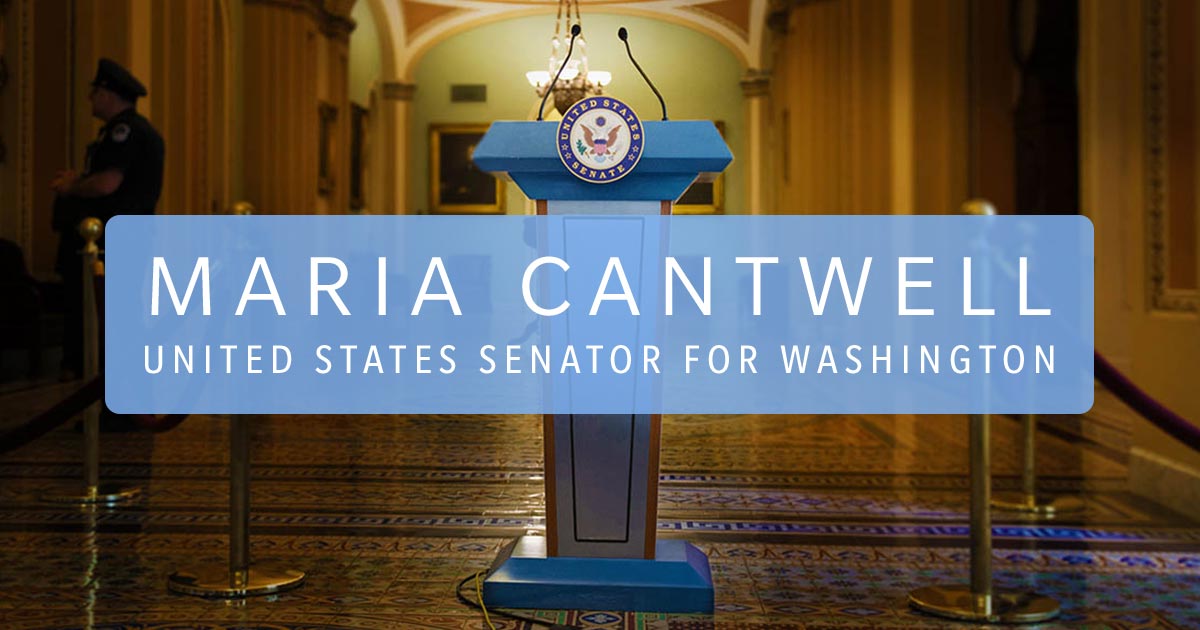Source: United States Senator for Washington Maria Cantwell
03.22.23
Chair Cantwell Grills Norfolk Southern CEO on Rail Industry Priorities: “We Are Not Going To Take Profits Over Safety Investments”
In questioning, Cantwell zeroes in on new requirements that could help prevent or mitigate accidents; 44 million tons of hazardous materials travel to destinations in the State of Washington each year by rail
WASHINGTON, D.C. – During a hearing today to examine improving rail safety in the wake of the East Palestine, Ohio, train derailment, U.S. Senator Maria Cantwell (D-WA), Chair of the Senate Committee on Commerce, Science and Transportation, questioned Norfolk Southern CEO Alan Shaw about the rail industry’s commitment to safety.
“We can’t have railroads adopt operating models focused on just cutting costs to achieve higher profits and then have higher accident rates,” Sen. Cantwell said in her opening statement. “From 2017 to 2021, railroads cut their workforce by 22% and reduced investment in the network by [25%] — and at the same time, accident rates increased by 14%.”
Sen. Cantwell also noted in her opening statement that rail safety is of nationwide importance, especially in the State of Washington.
“This hearing is not only about the East Palestine derailment,” Sen. Cantwell said. “Less than a week ago, a Burlington Northern Santa Fe train derailed in my home state of Washington, on the Swinomish Reservation in Skagit County, spilling [3,100] gallons of diesel near the Padilla Bay waterfront, a sensitive aquatic ecosystem. These are important issues for all of America.”
In the State of Washington, 44 million tons of hazardous materials move to destinations in the state each year by rail. This includes four million gallons of crude oil, which are transported by train through the state each day. Many oil trains travel through cities, including Seattle, Pasco, and Bellingham.
During the Q&A portion of the hearing, Sen. Cantwell asked Shaw about a Norfolk Southern document showing that the company’s employees are only given 30 seconds to inspect one side of a train car.
“I’m not familiar with a minimum or a maximum on railcar inspection duration,” Shaw said.
“Well, maybe you can find somebody in your organization to get you this document. But it’s clearly your document,” Sen. Cantwell responded.
Sen. Cantwell also highlighted the importance of providing adequate equipment to local firefighters, and confirmed Shaw’s commitment to a provision in the Rail Safety Act of 2023 that would ensure rail companies support local firefighter departments with resources — something current hazardous materials safety programs do not allow.
“Mr. Shaw, are you willing to support what’s in the underlying bill?” asked Sen. Cantwell. “Are you willing to do more than in the underlying bill to make sure local firefighting teams have the equipment they need?”
“We absolutely support what’s in the underlying bill, and we are willing to do more to support firefighters,” Shaw said.
Over 75% of fire departments in the State of Washington are volunteer or mostly volunteer-run. Only 14% of fire departments in the state have a specialized hazardous materials team that could best respond to hazmat spills.
On February 3, 2023, a Norfolk Southern train carrying hazardous materials derailed in East Palestine, Ohio. A fire ensued, emergency evacuations were ordered, and residents remain concerned about their immediate and long-term safety. Misti Allison, a resident of East Palestine, testified at the hearing.
Sen. Cantwell indicated that the Rail Safety Act of 2023, which was introduced by a bipartisan group of senators earlier this month, would address the issues that led to the East Palestine accident.
“We have to have minimum safety standards,” Sen. Cantwell said. “We have to have modernization of safety technology. And we have to have the minimum amount of people to do the job. So that’s what’s going to be required across every sector of transportation. And this committee is going to make sure that we get there, because we’re not going to let people just keep putting money in the bank and thinking that you can shortchange safety. We can’t shortchange Ms. Allison, and we can’t shortchange East Palestine.”
On February 17, Sen. Cantwell announced an investigation into railroads’ handling of hazardous materials, sending letters to seven top railroad CEOs seeking information about their safety practices.
Sen. Cantwell has a long history of past work to enhance safety regulations for railways. She advocated for the importance of electronically controlled pneumatic (ECP) brakes on rail cars carrying hazardous or flammable liquids eight years ago.
Video footage of Sen. Cantwell’s opening remarks is available HERE; audio can be heard HERE. Video of her Q&A with CEO Shaw and the other witnesses is available HERE; audio can be heard HERE. A transcript of Sen. Cantwell’s full remarks can be read HERE.
